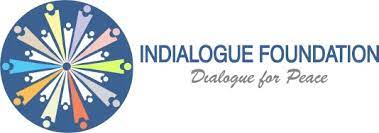 By Nurdin Kaparov,
By Nurdin Kaparov,
HYDERABAD: On 10th April 2010 Indialogue Foundation in collaboration with Indian Council of Social Studies Research organized a Workshop on “Globalization and Challenges: Illiteracy, Poverty and Ethnocentrism” at ICSSR Conference Hall located at Osmania University Library. Workshop was attended by around 100 participants from various disciplines; PhD. scholars, students, advocates, social workers, journalists, academicians and many more and participants also showed interest in attending alike activities in future.
Nurdin Kaparov welcomed the attendees and speakers. During his speech he quoted following:”These three social challenges that are going to be deliberated by learned scholars in these fields are important issues in contemporary world. Beddiuzaman Said Nursi a scholar and an author from Turkey who lived 60 years back identified these three social illnesses as prime causes of all other problems, and advised his friends to work towards eliminating them. And today Fethullah Gulen and many people took this message serious and initiated establishment of many modern schools all over world, to serve for humanity. We hope today’s presentations and speeches by our speakers will enlighten us with insight on said topics and motivate and teach us what we can do a bit in this direction as a citizens of globalized world”.
Dr. Vithal Rajan Social and Peace Activist of International Repute explained about newly passed bill Right to Education Act 2009 by Indian Parliament; which makes elementary education a Fundamental Right by giving Right to Children for Free and Compulsory Education. He said it is a historical moment to enable thousands of children in India to avail free elementary education and facilitate child labors for schooling by making it their fundamental right. Also expressed that this bill is only a lobby for this direction, many similar intellectual meets are required to spread the details and awareness of bill.
Prof. Akbar Ali Khan, Professor of Commerce, Osmania University explained that today’s Illiteracy is dissimilar than its definition decades back: “Years back reading and writing used to be criteria for defining Literacy but today using technologies especially computer, being aware of important contemporary issues and news, intellectual capital to be able to integrate with Globalized Society and many more”. He also said that today’s poverty is due to these factors, gave an example as rural families because of lack of knowledge they are not able to utilize government schemes properly, not able to open bank account and also trapped into hands of money lenders with huge interest born debts which literally turn people into slaves. He shared his experiences from observations of schools set up by Turkish Voluntaries who were motivated by Fethullah Gulen’s teachings; he said “There are hundreds of schools in more than 80 countries including Cambodia, Madagascar etc. These educational establishments work toward empowering youth with both knowledge and skills. And I have read a scholarly written book titled “Love and Tolerance” by this eminent personality which revivals self for sacrifice for Education and Peace”.
Dr. Mazher Hussain, Director of Confederation Of Voluntary Organizations, an NGO located in Old City of Hyderabad working for peace building and reconciliation, education and empowerment of marginalized communities. During his speech he defined Ethnocentrism thoroughly and said that it is became prime causes of conflicts and clashes. He explained about newly communal clashes that erupted in Old City and reconciliation activities that took forward by NGOs. He said that for decades these kinds of inter-communal disturbances have been witnessed especially in Old City which can be easily understood that both Illiteracy and Poverty is widely over-spread in this locality. He also shared a research conducted in City that century back people didn’t care the religion and identity of rulers, for people important criteria were their justice and administration skills but today people biased toward people of other communities and religion; it’s the sign for Ethnocentrism in people’s approaches.
Lectures followed by Question and Answers session; participants asked questions on various fields including religious and ethnic motivations behind political ends, it was felt that less time was spared for Q&A and participants expressed concern that in next workshop more time should be given for discussions.
In closing remarks Dr. Vithal Rajan expressed his feeling that besides said social problems there is also an important concern which is “Spiritual Crisis”; he advised that everyone should learn his religion in its essence and live life in universally excepted values and listen to internal voices; and said we should be able to have a pain by feeling the hunger of the neighbors who are straggling in poverty.





